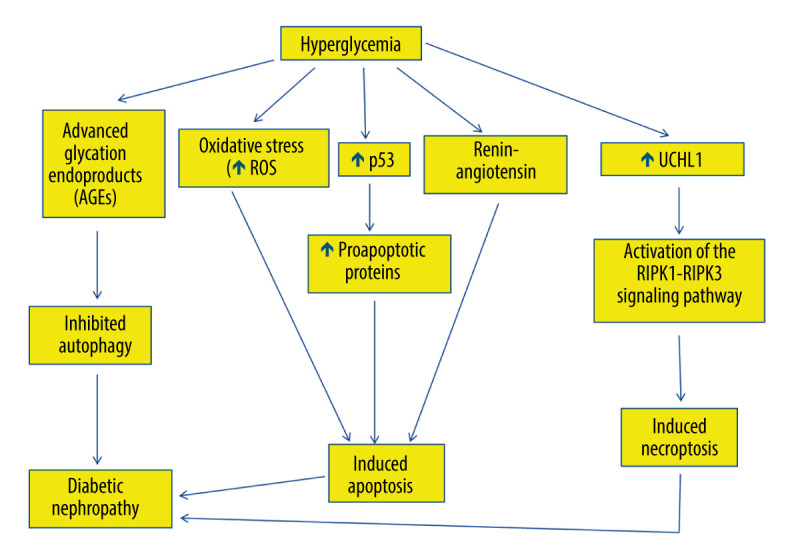Figure 3.

The role of hyperglycemia in the suppression of autophagy and induction of apoptosis and necroptosis in diabetic nephropathy. Hyperglycemia causes overproduction of advanced glycation end-products (AGEs), which inhibit autophagy, leading to diabetic nephropathy. Hyperglycemia induces reactive oxygen species generation, which initiates apoptosis. Hyperglycemia also increases tumor suppressor p53 messenger ribonucleic acid (mRNA) and protein expression, thus activating the transcription of many pro-apoptotic proteins that stimulate the extrinsic and the intrinsic apoptotic pathways. Additionally, hyperglycemia stimulates renin-angiotensin, which is involved in apoptosis and is involved in diabetic nephropathy. Hyperglycemia can also trigger necroptosis in diabetic nephropathy via activating the interacting serine/threonine kinase 1 (RIPK1)- RIPK3 signaling pathway. This figure was generated using Microsoft PowerPoint Software, version 10, Microsoft Corp., USA.
